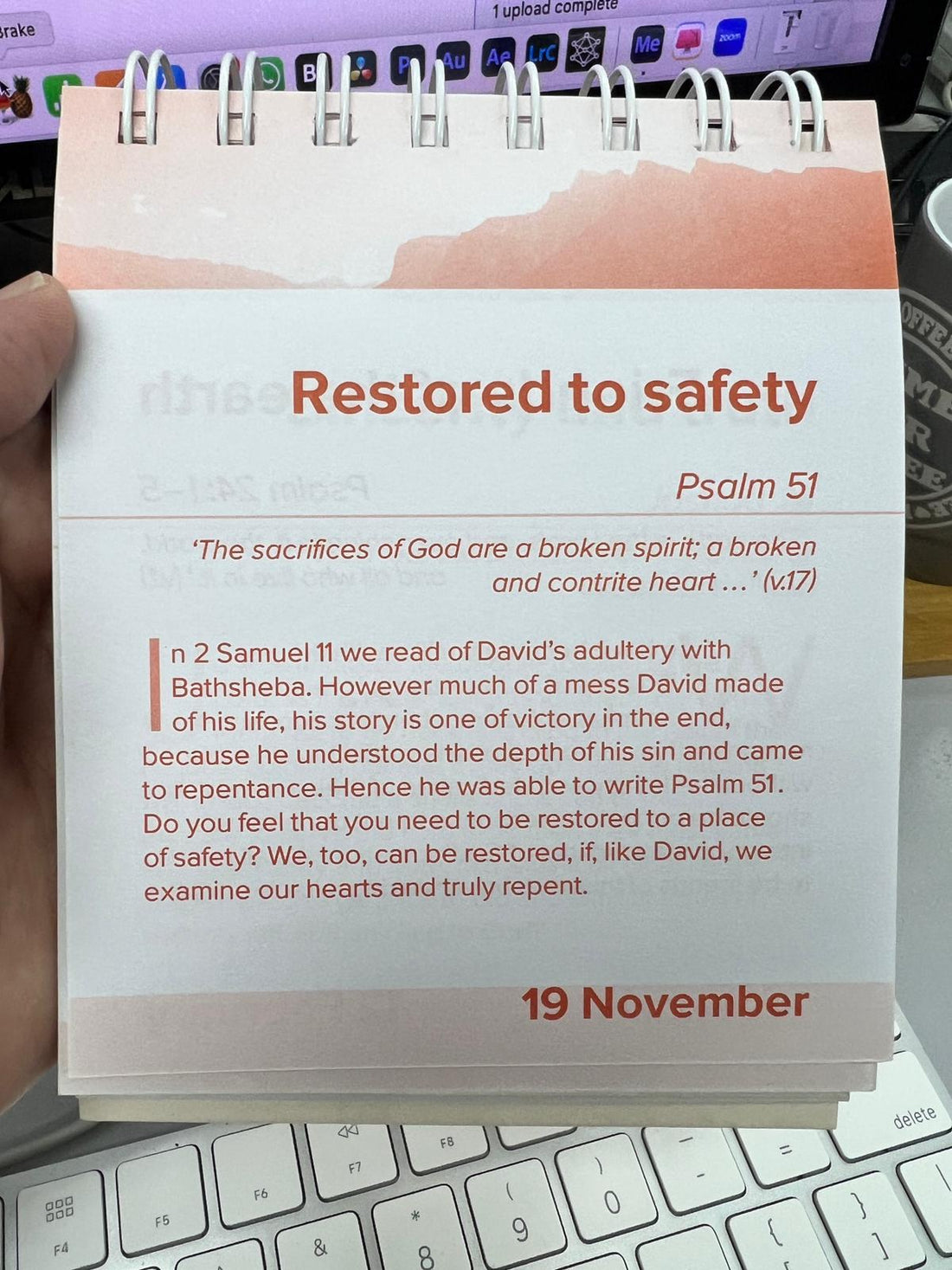
Psalm 51: Restored To Safety
Share

Psalm 51 is a poignant and powerful expression of repentance and the unwavering mercy of God. As one of the penitential psalms, it holds a special place in the hearts of believers seeking forgiveness and restoration. Let's delve into the depths of Psalm 51, exploring its historical context, themes, and the timeless lessons it offers to those who seek a renewed relationship with the Divine.
Attributed to King David, Psalm 51 is believed to have been composed after his grievous sins with Bathsheba and the subsequent rebuke by the prophet Nathan (2 Samuel 11-12). This psalm provides a window into David's soul as he grapples with guilt, remorse, and a burning desire for reconciliation with God.

The Cry for Mercy:
The opening lines of Psalm 51 set the tone for the entire passage: "Have mercy on me, O God, according to your unfailing love; according to your great compassion, blot out my transgressions" (Psalm 51:1, NIV). Here, David acknowledges God's unfailing love and appeals to His compassion, recognizing that only God's mercy can cleanse him of his sins.
Acknowledgment of Sin:
David doesn't mince words when it comes to admitting his wrongdoing. In verses 3-4, he confesses, "For I know my transgressions, and my sin is always before me. Against you, you only, have I sinned and done what is evil in your sight." This acknowledgment of sin reflects a deep understanding of the gravity of his actions and a genuine repentance.

The Power of God's Cleansing:
Throughout the psalm, David implores God to cleanse him thoroughly. He metaphorically speaks of being washed whiter than snow (verse 7) and desires a new heart and a steadfast spirit (verse 10). This imagery emphasizes not only the depth of his repentance but also the transformative power of God's forgiveness.

A Broken Spirit and a Contrite Heart:
David recognizes that external rituals and sacrifices alone cannot restore his relationship with God. In verses 16-17, he declares, "You do not delight in sacrifice, or I would bring it; you do not take pleasure in burnt offerings. My sacrifice, O God, is a broken spirit; a broken and contrite heart you, God, will not despise." Here, David highlights the importance of genuine contrition and a humble heart in seeking God's favor.

Psalm 51 remains relevant for believers today as a guide for genuine repentance and seeking God's mercy. In a world filled with challenges and temptations, the psalm encourages us to turn to God with honesty, humility, and a sincere desire for transformation.
Psalm 51 stands as a timeless testament to the human experience of sin, repentance, and God's boundless mercy. It serves as an invitation for believers to approach God with transparency, acknowledging their shortcomings, and trusting in His gracious forgiveness. As we reflect on the words of this psalm, may it inspire us to cultivate a contrite heart and experience the transformative power of God's love and mercy in our lives.